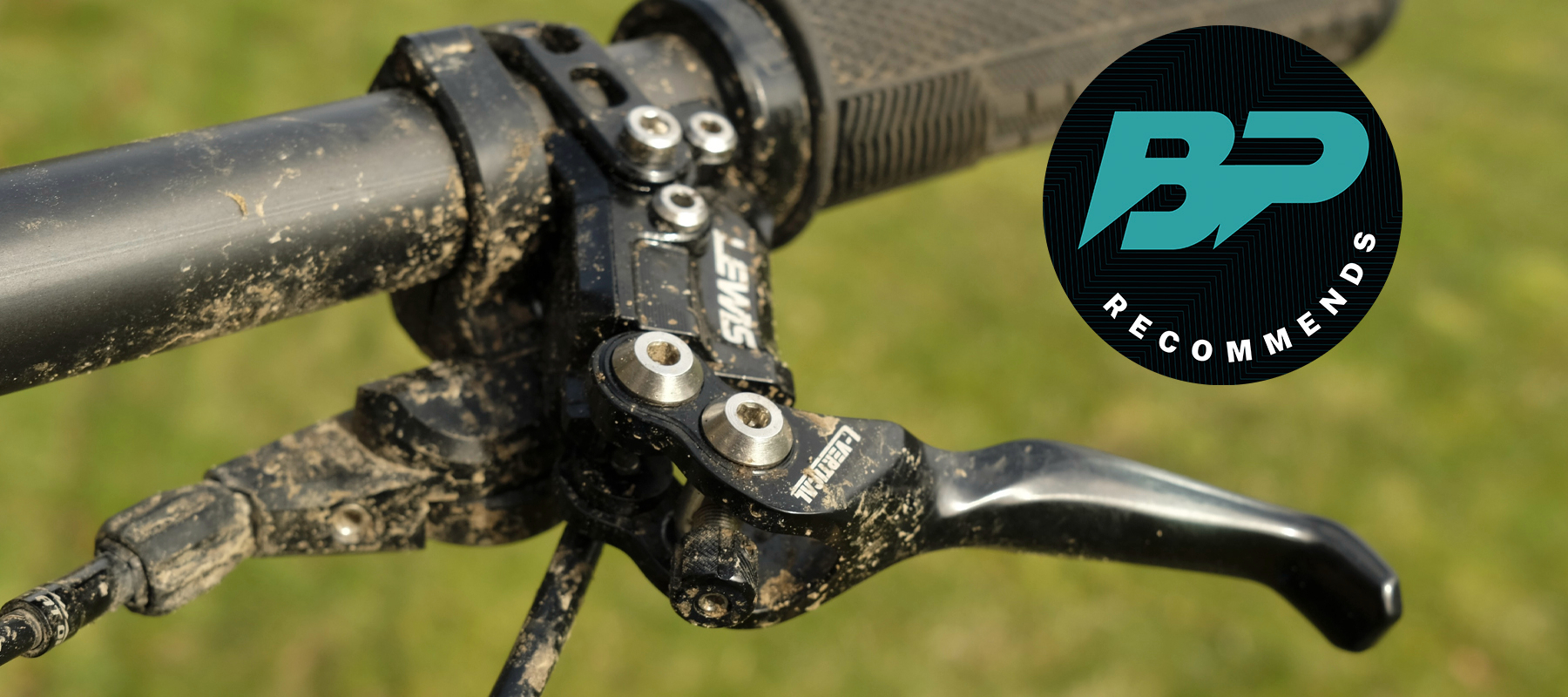Bike Perfect Verdict
Lewis LV2 brakes are light, affordable, reliable and stop like a DH anchor. Power delivery is blunt though and hose adjustments have a knack.
Pros
- +
Huge power to weight ratio
- +
Clean, accurate, light and fully adjustable lever feel
- +
Great price for premium feel
- +
Totally consistent performance and reliability so far
- +
Takes SRAM pads for easy sourcing
Cons
- -
Initial grab takes some getting used to
- -
Barbed hose attachment needs patience
- -
No direct mount option for Shimano shifters
- -
Straight line hose exit can look untidy
Why trust BikePerfect
You might have seen a fair bit of fuss about Lewis brakes on other sites and forums recently. Mainly centered around their obvious aesthetic similarity to the insanely expensive €1,100 Piccola brakes from German brand Trick Stuff. Design details and feel are actually very different though. Plus, does it matter what their parental influences might be if they stop harder than most big brand brake options for less money and less weight?
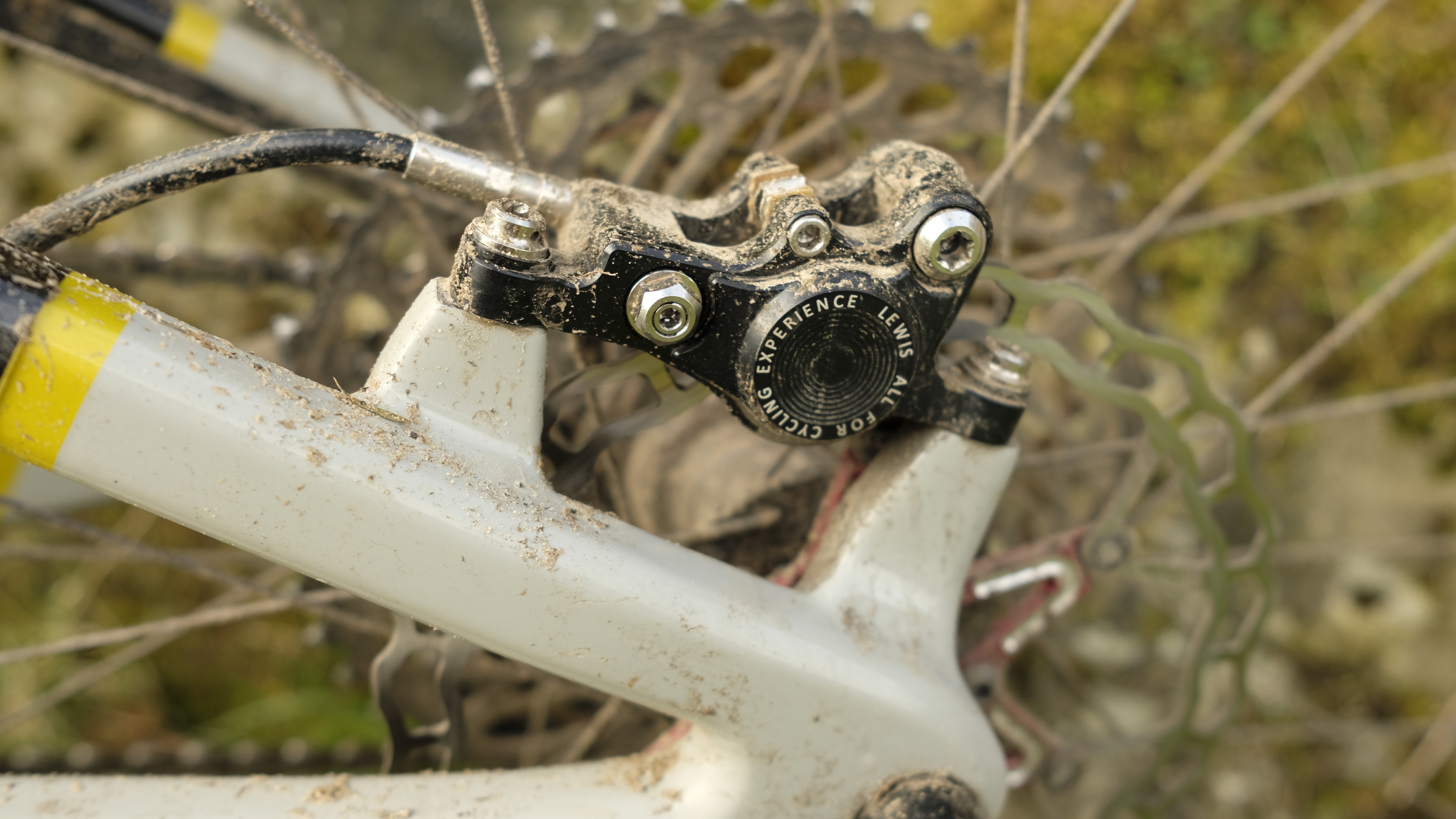
Design and specifications
There’s no denying definite similarities in lever form between the LV2 and the Piccola. Diagonal angle of the radial master cylinder and lever, underside hose attachment, side opening reservoir plate, separate CNC bar clamp and proud heads of the pivot and piston bolts on the bearing mounted lever all suggest Lewis have been at least looking over Trick Stuff’s shoulder. The lever blade is alloy not carbon though, there’s a bit more metal left in the clamp and there are two separate bleed ports on top of the lever – which the Piccola doesn’t have.
The two cylinder caliper is cleanly machined and houses oversized 21mm pistons. Hoses are Kevlar reinforced and use a fixed angle direct fit barb design at the brake end. Lewis own pads are supplied, but the brakes will take SRAM pads too, so sourcing spares is easy. They run on mineral oil so there’s less danger of damaging paint or poisoning your pets than with DOT fluid.
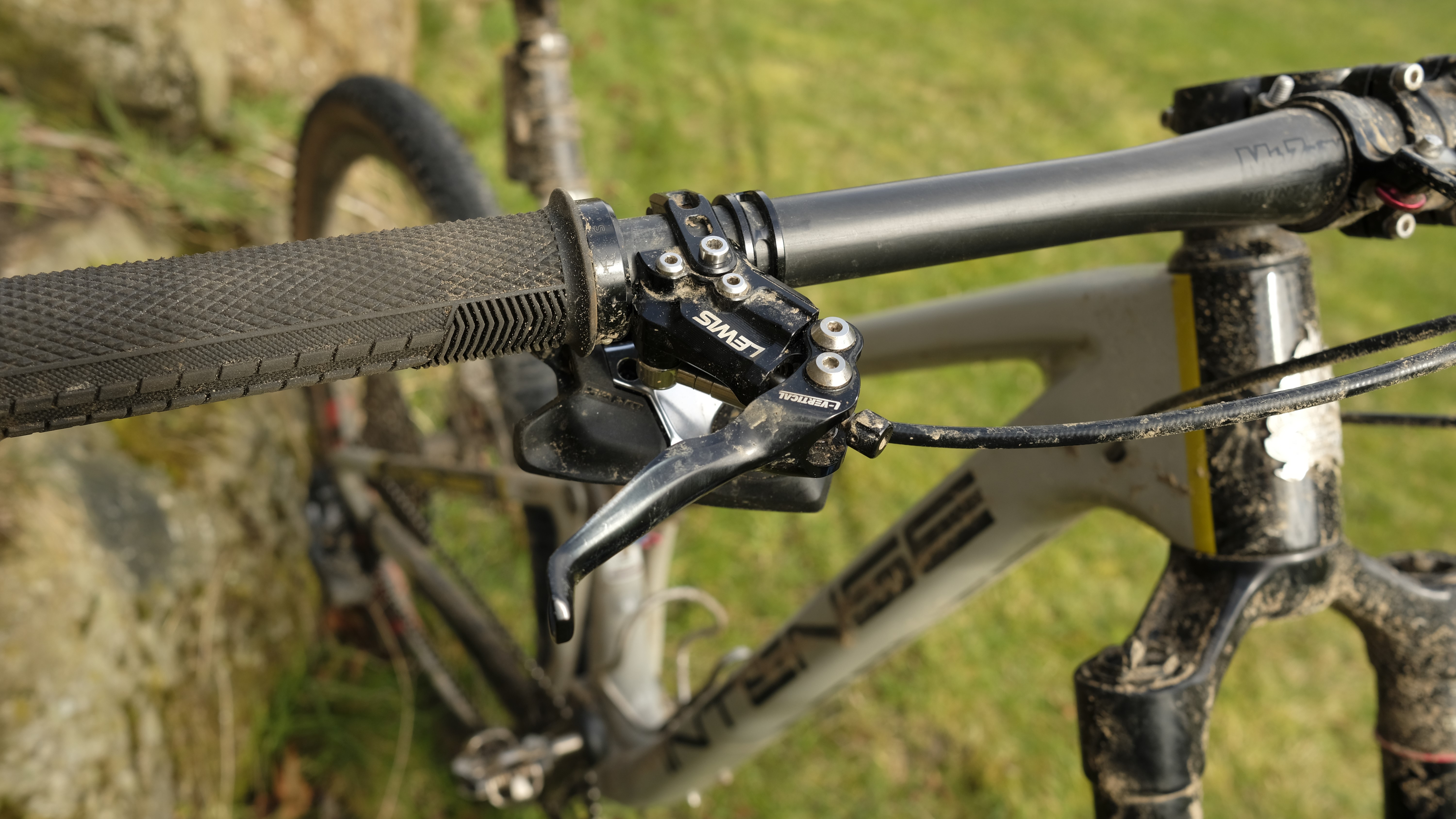
Performance
At 220g for a pre-bled front lever and brake with 90cm of hose, the Lewis LV2 is impressively light. Not as light as Trick Stuff at 157g or Hope’s XCR at 196g, but competitive with SRAM’s Level Ultimate four-pot at 223g and 25g lighter than Formula’s Cura and Hayes Dominion T2. At just $329.00 / £299.99 for a front and rear set, they’re much cheaper than most of those options apart from the Curas.
Hose shortening can take some patience (there’s a handy video on the Lewis brakes page) if you’re used to an olive and compression collar design. The additional top up valve on the lever helps ensure a really good fill if you take your time. Bedding in is very quick though, so be careful you don’t get launched over the bars after fitting.
That’s because not only are the LV2’s way more powerful than other lightweight brakes we’ve used, but they’re also very blunt in how they deliver power. So while modulation is good once you’re stopping, initial bite is definitely more abrupt than most brakes. That’s great for trials (UK distributor Submission cycles are a trials specialist) and more aggressive gravity use. However, if you’re an XC racer slithering down wet descents on sketchy tires, I’d actually suggest dropping a rotor size to reduce grab power. Getting to use a smaller lighter rotor than normal is obviously a double win for racers anyway.
Otherwise lever feel is very light thanks to the bearing mounts. There’s no trace of piston drag even after several filthy months and the stiff lever and clamp also reduce flex and increase precision. You can adjust both reach and bite point independently with the little removable thumbwheel adjuster supplied with the brakes. A 1.5mm hex wrench will do the job if/when you lose the thumbwheel too.
I used the front brake for three months before passing both of them to top XCM racer Amy Henchoz who’s put a huge amount of mileage and weather into them in the past month. So far they’ve been totally unphased by either experience, with extremely consistent performance top to bottom on long descents and no wandering bite point issues either.
At the risk of going on about the Trick Stuff comparison too much, once I was used to the power, I also found the LV2s more useable and intuitive than the Piccolas. They’re also quieter, with none of the warble that did my head in when I was testing Scott’s Scale RC SL race bike. The significantly lower price is much less likely to make your wallet scream too.
While the protruding hose attachment on the underside of the lever can interfere with separate clamp shifter angle, but Lewis make their own direct ‘matchmaker’ mounts if you’re on SRAM.
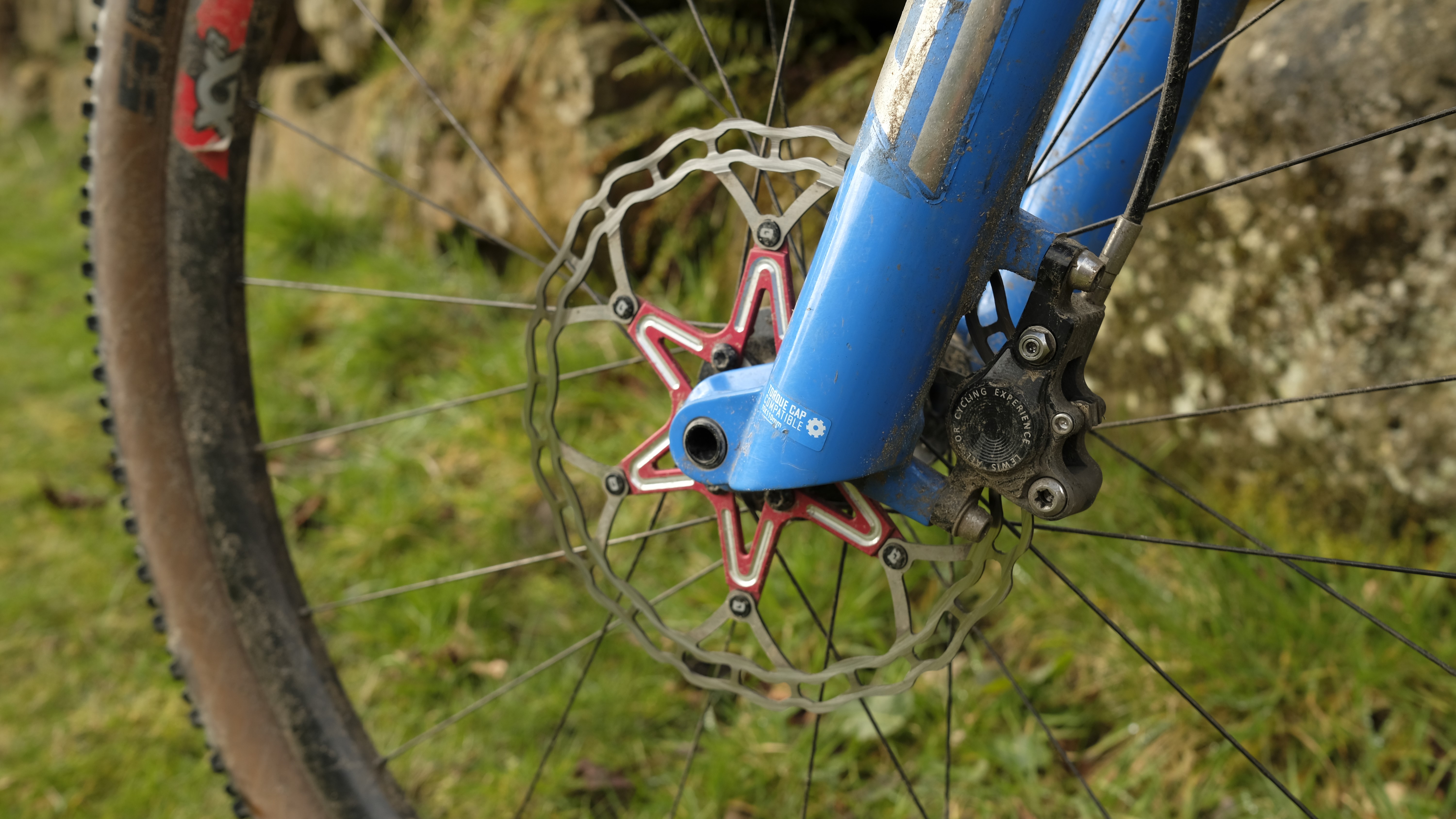
Verdict
Call me suspicious, but because they’re a new brand we’ve sunk a lot of test time into the Lewis LV2s through a particularly grim UK winter. Apart from a bit of a fight re–fitting the rear hose before I watched the instructional video, they’ve been superbly well behaved throughout.
Lever feel is consistent, crisply accurate and fully adjustable and they deliver a huge amount of power for such a light brake. Once you’ve adjusted to the abrupt grab there’s loads of modulation and while they’re listed as XC/trail brakes, I’d be happy using them for enduro if weight is a concern. Lewis offer the same radial lever with a four cylinder caliper as the LV4 as well, and an even more powerful axial lever and four cylinder caliper LH4 which we’ve currently got on test down in the Peak District.
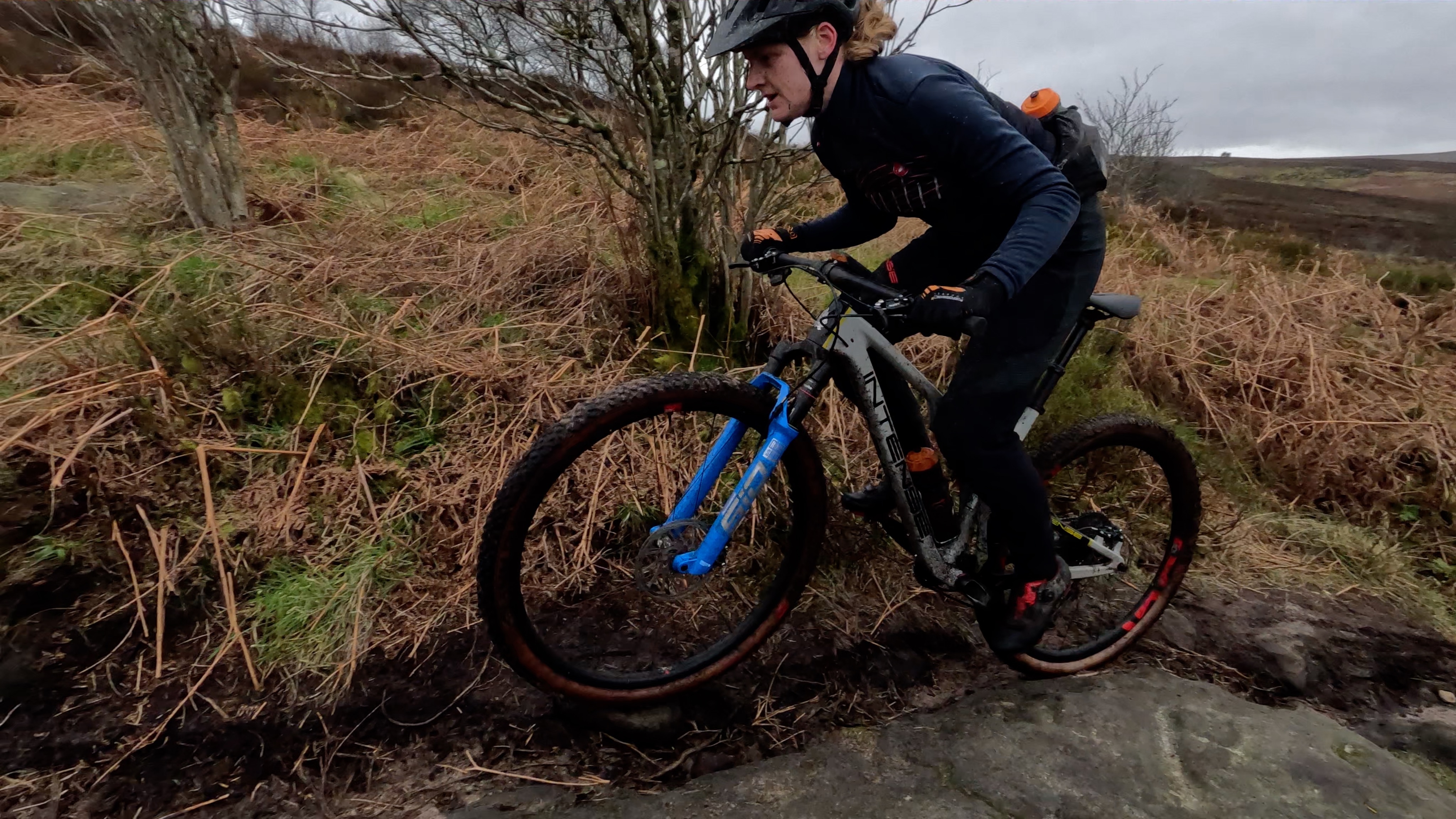
Tech specs: Lewis LV2 Brake Set
- Price: $329.00 / £299.99 / €309.99 – set of front and rear brakes, no rotors or mounts
- Sizes: 90cm front hose or 160cm rear
- Options: Silver or black anodized
- Weight: 218g front brake, lever and hose
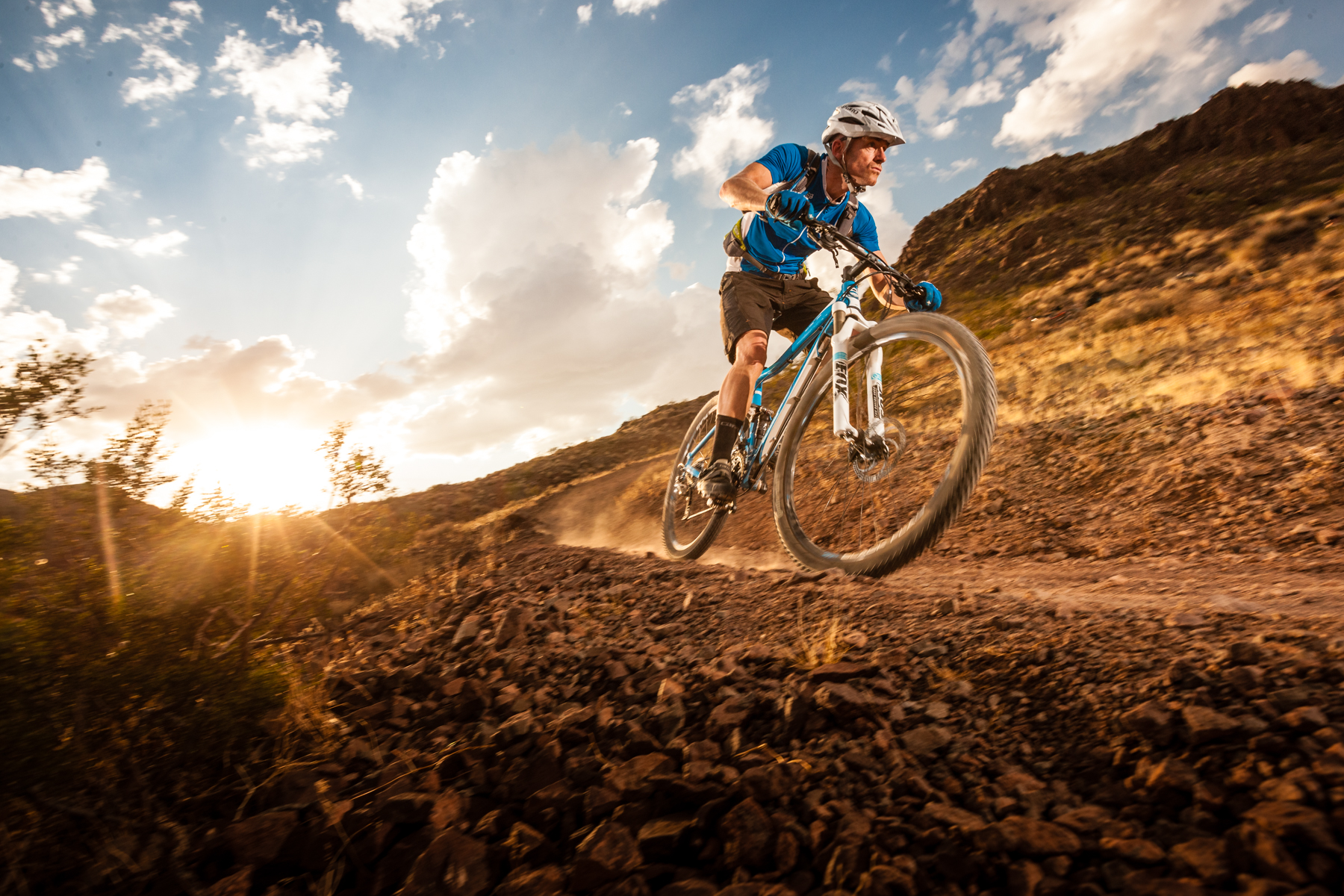
Guy Kesteven has been working on Bike Perfect since its launch in 2019. He started writing and testing for bike mags in 1996. Since then he’s written several million words about several thousand test bikes and a ridiculous amount of riding gear. He’s also penned a handful of bike-related books and he reviews MTBs over on YouTube.
Current rides: Cervelo ZFS-5, Specialized Chisel, custom Nicolai enduro tandem, Landescape/Swallow custom gravel tandem
Height: 180cm
Weight: 69kg
